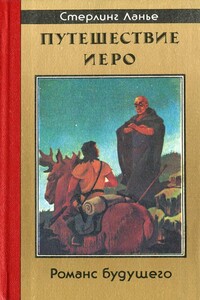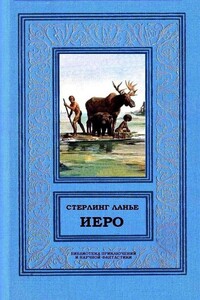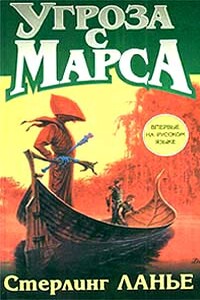Hiero's Journey | страница 79
“I am very sorry, Per Hiero—is that right?—I honestly didn’t mean to be rude. I’ve made believe I was someone extra important so long that it’s hard to be normal again. I come from a country which I guess is south of here, only, as you saw just now, I don’t know where south is. I did really live in a city, and the country, especially the wilds, is not what I’m used to. Oh, yes, my country is called D’alwah, and part of it lies on the coast, the salt sea of Lantik, What else did you want to know?”
“Well,” Hiero said more cheerfully, “that’s quite a bit better. I’m not really as nasty as I just sounded. Only remember that I’m fond of straight talk, my girl. Save the fairy tales for the kids from now on and we’ll get along. To start with, how did you get into the fix where I found you?”
As the tiny fire grew dimmer, until it was only an unregarded, winking ember, Luchare spun her tale. Hiero still believed not more than two-thirds of it, but even that was interesting enough to hold him riveted.
Judging from her description, she did indeed come from the far South and East, in fact just about where he himself wanted to go. Which made him listen to every word she dropped with extra special attention.
Her country was a land of wailed cities and giant trees, a tropical forest which reached up to the very sky. It was also a land of constant warfare, of blood and death, of great beasts and warlike men. A church and a priesthood not too unlike that of the Abbeys, so far as he could gather, governed the religion of the people and preached peace and cooperation. But the priests were seemingly incapable of stopping the constant warfare between the various city-states. These states were socially stratified, with castes of nobles, merchants, artisans, and peasants, plus autocratic rulers. There were standing armies, just as large as could be economically maintained without crippling their respective countries through taxation exacted from the peasants to maintain them.
Hiero was frankly incredulous. “Can your people read and write?” he asked. “Have they any of the old books of the past? Do you know of The Death?”
Of course they could read and write, she retorted. Or at least the priesthood and most of the nobles could. The poor were kept too busy to learn, except the few who got into the church. The merchants could do simple, practical arithmetic. What more was needed? As for The Death, everyone knew about it. Were not many of the Lost Cities nearby, and some of the deserts of The Death too? But books from the pre-Death age were forbidden, except perhaps to the priesthood. She herself had never seen one, though she had heard of their existence and also that anyone who found one had to turn it over to the authorities on pain of death.



